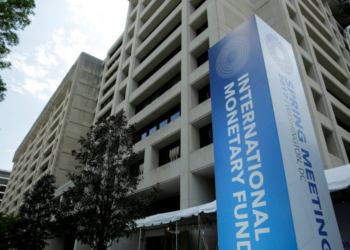The latest data from the Central Bank of Nigeria indicates the country’s current account deficit to a whopping $5.2 billion in the 4th quarter of 2020.
A current account deficit occurs when a country’s foreign liabilities exceed its foreign assets. It is exacerbated when the country imports more than it exports.
At $5.2 billion Nigeria’s current account deficit for the 4th quarter of last year topped the $3.34 billion recorded in the 3rd quarter of 2020 and is the highest since the $6.59 billion recorded in the 3rd quarter of 2019.
READ: Nigeria attracts more FDI than FPI for the first time in 4 years
Why the current account deficit widened
According to the CBN, the reason for the widening current account deficit was due to the return of commercial activities in the country following several Covid-19 induced lockdowns. This triggered a higher demand for goods and services piling pressure on Nigeria’s import bill.
“In the review period, the partial return to normalcy and gradual pick up in domestic economic activities exerted pressure on the current account, as demand for import of services inched up, thus, a relatively higher deficit in the current and capital accounts was recorded.” CBN
READ: CBN takes proactive step by introducing Clean Notes Policy
Specifically, the apex bank cited the import of petroleum products as a major contributory factor to the ballooning current account deficit.
“The goods account witnessed a higher deficit of US$5.26 billion, resulting from increased import of both petroleum product and non-oil import. “ CBN
READ: U.S. budget suffers a deficit of $3.1 trillion in 2020, as pandemic slams the economy
Key Highlights
- According to the CBN the estimated deficit in the current account widened by 57.9% to US$5.27 billion (5.1% of GDP), compared with US$3.34 billion (3.2% of GDP) in the previous quarter, owing largely to higher services import bills.
- The deficit in the services account also increased significantly to US$3.49 billion (3.3% of GDP), occasioned by higher payments for transportation and travels as economic activities gradually improved during the review period.
- Nigeria last recorded a current account surplus in the second quarter of 2018 at $4.3 billion.
READ: Senate summons CBN Governor over Crypto ban
Why this matters
The widening current account deficits is a major contributory factor to Nigeria’s forex stability as it confirms there is more demand for dollars to import goods and services compared to export.
- This could also lead to higher inflation due to the effect of the depreciation of the naira on prices of goods and services.
- Nigeria will need to earn more in exports or attract forex inflows through remittances to cushion the effect of the deficits.
- This perhaps is why the apex bank is focused on attracting forex inflows through its Naira4Dollar promo.





















